
KABUL: Pakistan floated a concept of an Afghan power-sharing arrangement between Kabul and the Taliban as part of a peace talks "end game", Afghan Deputy Foreign Minister Ershad Ahmadi said on Monday, a suggestion that met with outrage in Kabul.
The idea was raised in a Friday meeting between Pakistani national security adviser Sartaj Aziz and Afghan ambassador Umer Daudzai, Ahmadi told Reuters. It involved a form of federalism and ceding power in some Afghan provinces to the Taliban.
The suggestion dashed hopes of a reset in the relationship between the South Asian neighbors following the election of Pakistani Prime Minister Nawaz Sharif last month.
It also suggests a visit by British Prime David Cameron to the region at the weekend to promote the Afghan-Pakistan relationship as well as peace talks with the Taliban had failed before he had even arrived.
"We believe this federalism is a means for the Pakistanis to achieve what they could not achieve through their proxy (the Taliban) on the battlefield," Ahmadi alleged.
In Islamabad, Pakistani foreign ministry spokesperson Aizaz Chaudry denied any suggestion of ceding territory had been made during the meeting.
"It was a courtesy call during which the adviser and ambassador also discussed bilateral relations. No reference was made to ceding of provinces to Taliban," Chaudhry told Reuters.
Pakistan has a ‘considerable influence’ over the Afghan Taliban leadership.
It is seen as crucial to US and Afghan efforts to promote peace in Afghanistan, a task that is gaining urgency as NATO troops prepare to withdraw from the country by the end of 2014.
Afghanistan has long accused Pakistan of playing a double game regarding the 12-year-old war, saying its neighbor, facing a Taliban insurgency of its own, makes public pronouncements about peace, but allows elements of its military to play a spoiling role.
Afghan President Hamid Karzai also voiced his concern about Pakistan's motive in the peace process during a Saturday news conference with Cameron, saying that "delivering a province or two to the Taliban" would be perceived as an invasion by the Afghan people.
Pakistan was not immediately able to comment on what was said by Aziz or its view of Ahmadi's assertions.
'Grand Design'
Ahmadi also said the ceremonial opening of the Taliban office in the Gulf state of Qatar's capital, Doha, which raised angry protests in Kabul that the office had the appearance of a government-in-exile, was part of a Pakistani plan designed to increase the insurgents' international prestige.
"There are elements within the Pakistani government who have a grand design of using the peace process as a means to undermine the Afghan state and establish little fiefdoms around the country in which the Taliban - its most important strategic asset in Afghanistan - play an influential role," he said.
Before Afghanistan suspended talks in Doha, US officials had said they would have stuck to an insistence that the Taliban break ties with al Qaeda, end violence and accept the Afghan constitution, including protection for women and minorities.
During their 1996-2001 reign, the Taliban had banned women from education, voting and most work, and did not allow them to leave their homes without permission and a male escort.
Ahmadi said despite hopes the new Sharif administration may curb meddling in Afghan affairs, Kabul now felt the civilian administration was aiding the double game played by the military and the country's powerful intelligence agency, the Inter Services Intelligence (ISI).
"While we believe there are elements of the military and the ISI who endeavor to weaken the Afghan state, their narrative seems to be getting some kind of buy-in from other state institutions and that's a major concern," he said.
In particular, the ISI had played a significant role in the events in Doha, Ahmadi said. Part of the reason Kabul was so outraged by the opening of the Taliban office was the use of symbols, including the Taliban flag, that had not been approved as part of the peace deal.
Soon after the flag was taken down, some or all of the Taliban delegates held a meeting with ISI officers in Doha, Ahmadi said.
"We do monitor these things and we know there have been regular interactions," Ahmadi said.
COMMENTS (59)
Comments are moderated and generally will be posted if they are on-topic and not abusive.
For more information, please see our Comments FAQ














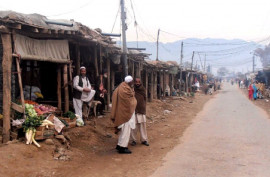
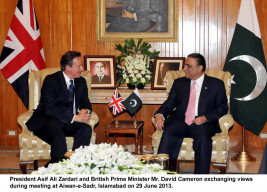
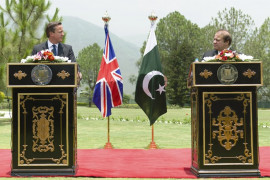
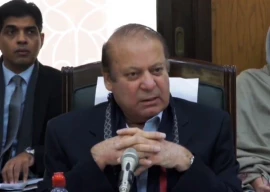
















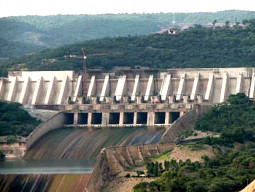
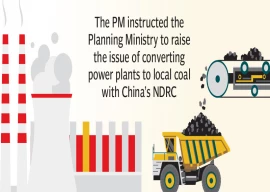

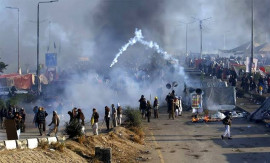






They need to purchase their electricity from India, but want to fight them by sending suicide bombers into Afghanistan. I've tried many ways to understand their national security objectives, Pakistan's policies don't make sense. it's like they have tunnel vision. Their economy is in ruins, they're energy shortages are crippling, their currency is only a fraction what it was before these policies. And they want the conflict and dist ability to continue.
It's almost like they are so heavily invested in a failed miscalculated formula that they refuse to give up on it. They say the Americans want a graceful exit. I think the Pakistani's are desperate for one out of their ridiculous proxy war too. Someone tell the ISI they accomplished something so both countries can get on with providing for their people.
@gp65:
"1) His statements were off the cuff not off the record. ... There is no evidence that he asked for his statements to be made off the record at the time he made them in 2011."
I never claimed in my comment that he asked for off-the-record. Read my comment again.
"2) He made them when he was not part of the government but a member of opposition hence to ascribe his statements to his current official position is simply wrong."
You mean when in opposition, people only speak lies?
"3) .... but unless he reiterates a statement that he had made earlier AFTER becoming Defense Secretary, the statement cannot be ascribed to Defense Secretary of US."
Does that mean only people of lesser credibility are promoted to responsible positions in USA?
"4) At no time – before or after becoming Defense Secretary did he ever say that India was financing ‘criminal attacks on PAkistan’ – a statement that MAria ascribes to him."
Well, didn't he say in plain English that India was financing problems for Pakistan from Afghanistan?
"5) HE is Secretary Defense not Secretary State as you mention."
My mistake, thanks for correcting.
India support Karzai government which is elected one for its interests. If Pakistan support Taliban , a militant group for its interest, then what justification we have. There should be some ethical values while protecting national interests.
No matter what this mindless mullas not going to accept the offer given by pakistan / Afghan or US live together peacefully. otherwise indian subcontinent would have not be divided.
@NK Ali: Handing over Kashmir may not be that bad for India but certainly be a disaster to Kashmir. When a kid does not understand the danger of playing with fire, parents don't just go ahead and throw it in the fire to let the kid understand the danger. They keep the kid away from fire and sometimes use tactic of fear until the kid itself know how playing with fire can cause serious injury.Hope the point is clear.
@ModiFied: if that is the case, then hand over Occupied Kashmir to Pakistan. How does that sound? Not bad, eh? What is good for Pakistan, cannot be bad for India. have a nice day.
@Gp65:
"Despite repeatedly asking Maria to show one statement made by Chuck Hagel on India’s role in Afghanistan AFTER he became defense secretary, she has failed to do so."
You speak truth off the record - that is why this concept is invented - when saying it on record or officially may have complications. Now Chuck Hagel is the Secretary of State, and he has to watch the broader US interests as well than to solely uphold truth. Nowhere in this world, including India, a foreign minister always speak blunt truth when there is a potential for serious diplomatic row Moreover, it is neither required nor necessary from the Secretary of State that he must reconfirm or negate every statement he had ever made before taking the office. So, if he didn't reiterate after becoming Secretary of State what he has said a year ago in a frank candid environment, that does not mean what he said then were total lies.
"Pakistan floated a concept of an Afghan power-sharing arrangement between Kabul and the Taliban as part of a peace talks" ++++++++++++++++++++++++++++++++++++++++++++++ Illustration of what Pakistan means when it supports an Afghan sponsored Afghan owned Peace Process.
How will Pakistan feel if the US or other powers propose that Pakistan share its powers with the BLA and TTP and 'cede power' in Balochistan, KP and GB/AJK to the Baloch, Pashtoons and Kashmiris respectively?
What rights Pakistan has to impose a government of its choice and divison of the country on the Afghans?
@allah o akbar: @Lala gee: @maria:
The link you provide refers to a speech made in 2011. hagel was not defense secretary then. Please do not attribute the Gravitas of defense secretariat to off the cuff remarks made by Hagel in a private speech before he became secretary defense.
@Afghan Maihan:
You have no idea where i been educated and where i live...All you could think of was this egocentric rants...nothing else. But ET knows where i am..lolz
How will Pakistan feel if the US or other powers propose that Pakistan share its powers with the BLA and TTP?
What rights Pakistan has to impose a government of their choice on the Afghans?
All of the link to Chuck Hagel’s remark posted here are second hand remarks. Here is the link to the original video: https://www.youtube.com/watch?v=r5IO4lGywOo. All he is saying that India financed problems for Pakistan. If one put this remark in context he is referring to India’s support for the Northern Alliance which defeated Taliban or financing development projects to show progress in the country compared to savagery of Taliban. Hagel is known for making comments from his cuff like he asked an Indian Professor if he was a member of the Taliban or “we will soon see last copies of a human pilot aircraft”. Videos of these remarks are available on you tube.
@Afghan Maihan,
No body is trolling here, just informing you that you better be man enough to stand up, lower your ego and accept that afghanistan cant solve there problems, these problems are not created by Us Pakistani's. If you lower your ego and take a time to Thanks Pakistan and the people of K-P for hosting more than 4 million refugees, on contrast Afghanistan government goes and thank for 5000 refugees in India. Isn't that selfish---
@Maria:
you have some reasons for your views; but your petty fogging does not bring some clarity. You know very well that a Pashtun is never a puppet of any one though ready to go into the role of a puppet. Karzai is the master of machiavillean politics and has outsmarted all the emmissaries coming from forein land. he has appointed an Ahmedi Emissary to deal with Pakistan, he is receiving support from the Indian Government to prevent the Talibans march into kashmir! He is closer to Mullah Omar than he is to the non Pashtuns of his cabinet. Besides there are no Afghan refugees in the Pashtun territory, since afghanistan has never reognised Lord Durand immaginery line in the space!!
Rex Minor
@B read it dear http://www.telegraph.co.uk/news/worldnews/asia/india/9897707/Chuck-Hagel-criticised-for-India-Afghanistan-remarks.html
@B: I think the real deceit is when you fool yourself about the obvious. Since the British left South Asia in 1947, India has actively used its willing partner of Afghanistan to foment problems in Pakistan. There are many references to this obvious reality but a simple link from one of your Indian newspapers should suffice http://www.indianexpress.com/news/india-financed-problems-for-pak-in-afghanistan-chuck-hagel/1080062/ Pakistan is one of the oldest civilizations on earth - both Mohenjendaro and all of the Indus Valley cities are over 7000 years old and predate Hindu culture and the multi ethnic nation of Afghanistan which is hardly 200 years old. Pakistanis don't need lessons from Afghans and Indians about nation building when the British created modern India and named the country of Afghanistan after a treaty with a corrupt King there.
@B:
"I have on three occasions asked you to provide link to this but like a coward withdraw into a corner. It is for this reason, the lies presented by you that tells the world at large of the deceit from Pakistan."
Here is the link you are ranting about: "'India financed problems for Pakistan' from Afghanistan: Chuck Hagel", printed on February 26, 2013 in this very newspaper Express Tribune. A simple Google search would have saved you from embarrassment and a lot of time you wasted writing above claptrap.
@ Afghan Maihan..... you Afghans have been failíng since 1747 to create a stable country..... stop blaming your failures on outsiders.
@Maria:
"What a joke, the real double game has been India and Afghanistan working against Pakistan and the Afghanis and Indians have been at it since the British left in 1947."
You have just scratched the surface of the truth. The reality is India is playing much more deeper game than you think. Ask any Indian who they hate most, and they would tell you without even thinking "Afghan invaders", and the truth is their hate for them is not totally baseless. Now, how come a nation who had suffered severely in the hands of another nation and hate them from their inner core, suddenly becomes not only friendly with them but also start spending billions of dollars on them, the money their own poor direly need. If you think little harder, it will become clear that this is the most cost effective and totally safe strategy to "kill two birds with one stone", that is play Afghans against Pakistan. A similar strategy is already being used in North Waziristan. If you try to remember, these were the people who have committed the sin of freeing Azad Kashmir.
LOL survived resulting into living in stone age. Pak helped you guys in ur difficult times so atleast show some courtesy and respect one who supported you in your difficult time. You should solve your issues through dialogues instead of making dramas on media after every month @Afghan Maihan:
He is playing Indian game and filling his pockets with their money. Who would want to share alms with others, especially with the opponents.
Look who is talking "Back off" Pakistan paid alot for u guys At least show some courtesy. Your country is already messed up an you only pin point pk for making propaganda of ur own failures.
US is also trying for a settlement in which Afghan current government and Taliban share power as long as Taliban accept the current Afghan constitution. I don't see why Pakistan's suggestion would be different from the stated US goal. The only hurdle towards achieving any settlement is the Afghan government itself because for them, the party time seems to be ending with US leaving and Taliban coming into settlement with US for power sharing.
Afghanistan is another province of ancient Pakistan, since 1371 BC. Is it to difficult too understand for the Afghans, Indians and the West? Pakistan's influence and control over Afghanistan is crucial to protect the Afghans from Russia, Iran, India, Italy and Talibans.
Afghan opposition also wants federalism. Pakistan is not saying anything new or different. karzai is afraid of losing power so as usual he is venting his anger at Pakistan.
I have gone through all these amusing comments and appreciate the freedom of expression that ordinary people whether Pakistanis or non-Pakistanis enjoy at the Pakistani newspapers. I cant stop to make a statement here and that is "PAKISTAN WILL NEVER ACCEPT AN ANTI-PAKISTAN GOVERNMENT LIKE THE CURRENT ONE IN AFGHANISTAN" and honestly, I believe it is a fair concern on Pakistani end. History has proved that Pakistan is the enemy no. 1. The policy against Pakistan is that of "KEEP YOUR FRIENDS CLOSE BUT YOUR ENEMY CLOSER". They call us their frontline ally and when they see the crack create Bangladesh......I hope you all understand what I mean.
afghan govt is baffled because of US-TALIBAN peace talks and now they are targeting pakistan as its an easy target karzai regime is surely in a mess!
@Maria: "This was confirmed by US Defense Secretary Chuck Hagel" I have on three occasions asked you to provide link to this but like a coward withdraw into a corner. It is for this reason, the lies presented by you that tells the world at large of the deceit from Pakistan.
Afghan deputy FM is rather modern looking. How can he represent his country looking like that?! He should ditch his suit and tie for a shalwaar kameez and grow a beard.
To all the Kala Khans and other Pakistanis of various stripes
Afghanistan has been around since 1747 long before colonial powers bestowed you the gift of a country, we were dealing with imperial Russia and your colonial master Great Britain and this game continues today with new players jumping into the fray. Afghans are old hands at this and they have survived and will keep on surviving despite the conniving ways of its regional rivals.
Mr. Karzai wants to remain the 'ruler' of Afghanistan till end, that ain't gonna happen. Pakistan has every right to keep at bay the India loving moles. Time over for Mr. Karzai.
ET: What is up with all the censorship? None of my comments were allowed yet mindless rants by Urdu medium madrasa graduates are allowed. Your publication is free and fair only for Pakcentric trolls.
No quarter for Pakistani backed militants should be allowed anywhere in Afghanistan. Death to the Taliban and their supporters. Pakistanis who support the Taliban should invite the TTP to form federated units of FATA and the seven political agencies first and we will see how that works out for you.
@Indian: What a joke, the real double game has been India and Afghanistan working against Pakistan and the Afghanis and Indians have been at it since the British left in 1947. The problem is that Afghanistan is an Indian puppet state but more importantly, India uses Afghanistan as a base to conduct criminal attacks against Pakistani civilians. This was confirmed by US Defense Secretary Chuck Hagel. If India and Afghanistan keep meddling in Pakistan's affairs, what should Pakistan do? Obviously peace in Afghanistan is good for the region but Afghanis have to stop being stooges of the Indians. Afghanistan should work with Pakistan to take back all of the refugees who live in Pakistan and there should be a barrier on the Afghanistan / Pakistan border so the refugees can't return to Pakistan. I think that the different races in Afghanistan like Tajiks, Uzbeks, Hazaras and Kandahari Pashtuns etc need to learn to live with each other instead of blaming their problems on Pakistan which is their habit.
@Indian: You are welcome to the 2 million Afghan refugees before you start commenting.
@ Mindless
The Taliban are perceived as stooges by Pashtuns and non Pashtun alike, the question of Pakistan buying Pashtuns does not arise because Afghans are hip to the duplicity of Pakistan. You are in denial of the ground realities in Afghanistan. Afghan leaders from Pashtun provinces are against the Taliban and Pakistani interference.
Afghans unanimously support the initiatives and directives of Hamid Karzai's nationalist government. You are parroting a stale ISPR narrative that has outlived it's utility. Afghan media has awakened Afghans from their slumber and sown the seeds of nationalism and national unity. Your rants are mindless like your handle and utterly devoid of facts.
I like comments from mindless
"Wrote same at reuters page, and gonna write the same here, Afghans are who? Pushtoons, Uzbeks, Tajik, Hazaras, and others.
20% population is so confident in making decisions about independent pushtoons. History is at best prove that pushtoons can rule afghanistan the best not Northern Alliance AKA President Karzai’s Government. If Northern alliance can buy elders of pushtoon tribes, then we should as pushtoon raise money to buy them back to have our own government against Northern Alliance. Every body knows how much Karzai paid to tribe elders to endorse his jirga in Afghanistan.
At the best Pushtoons can handle northern alliance more better way than any body else. And Pakistan should promote the political side of Taliban for the sake of peace."
Its none of the pakistan business on matters related to afghanistan.Pakistan should stay away from afghanistan.
I only came here to see the comments and I found what was expected. Pakistani fervour is easy to predict.
@Syed Mateen: When you can't understand what you have written, how can I understand what you have written for us to understand :-P
@mindless, your name fits your mindset, mind our own buiness, leave Afghanistan alone and better take care of TTP, LeJ, ASWJ, and other internal menaces including energy crises that has been creeping ur society.
Throw away the trash into your neighbor's backyard and yell at them for not cleaning it up. Typical Afghanistan.
@mindless: Agreed. You are mindful not mindless. .
As soon as the foreign forces will leave Afghanistan in 2014, Afghan Taliban will take over the of entire Afghanistan as well as Afghan Government in less than 24 hours.
Why to blame Pakistan?
What Mr. Humid Karzai was doing for so many long years in Afghanistan, if he cannot influence the people against Afghan Taliban.
It will be interesting to see how long it takes for someone to propose similar arrangement in Pakistan
Why Afghan Authorities are blaming Pakistan for having influence on Afghan Taliban?
When Afghanistan can't have influence on their own Taliban, how can Pakistan can have influence on Afghan Taliban, when Pakistan does not even have influence on Pakistani Taliban.
Wrote same at reuters page, and gonna write the same here, Afghans are who? Pushtoons, Uzbeks, Tajik, Hazaras, and others.
20% population is so confident in making decisions about independent pushtoons. History is at best prove that pushtoons can rule afghanistan the best not Northern Alliance AKA President Karzai's Government. If Northern alliance can buy elders of pushtoon tribes, then we should as pushtoon raise money to buy them back to have our own government against Northern Alliance. Every body knows how much Karzai paid to tribe elders to endorse his jirga in Afghanistan.
At the best Pushtoons can handle northern alliance more better way than any body else. And Pakistan should promote the political side of Taliban for the sake of peace.
These Afghanis will also hold Pakistan responsible for initiating World War 1 and 2...what about those Indian agents present in their country who are supporting terrorists in Pakistan?
First the Afghan govt comes to Pakistan to help them to get Taliban to the negotiating table, then asks Pakistan to release the Taliban prisoners from Pakistani jails, then they get angry when Pakistan suggests something and complain about the influence of Pakistan on Taliban and meetings of the representatives, The Afghan govt is extremely confused !! Pakistan is directly effected from Afghan conflict, we have got millions of Afghan refugees in the country making Pakistan the biggest Refugee holding country in the world, the law and order of major cities such as Peshawar and Karachi broke down because of these refugees, and then they say Pakistan has no right to interfere ??? They should take back all the afghans from Pakistan first, and then maybe their demand of no interference can be considered. By the way Pakistan does have influence over Taliban but does not support them , this can be evident from the fact that Afghan govt asked Pakistan to release Talibans from PRISONs, Theres a difference between prisons and diplomatic guesthouses !
Ahmadi said despite hopes the new Sharif administration may curb meddling in Afghan affairs, Kabul now felt the civilian administration was aiding the double game played by the military and the country’s powerful intelligence agency, the Inter Services Intelligence (ISI).
It is in nawaz sharif's DNA to make pakistan a pillar of Islam, with him as the Amir ul Momineen, and Afghanistan as its gateway.
Federalism should mean Taliban honoring the constitution, taking part in elections and then ruling any and all provinces where they can win a free and fair democratic election ( without using violence and intimidation ). Mr Karzai should not be allergic ti the term federalism but clearly spell out what federalism means and leave it to Taliban to accept or reject it.
Old habits die hard. The policy created by a few maniacs in the 1980s, continues to haunt us, the Afghans, and the entire region. Still we continue to have delusions of establishing a supremacy over our western neighbor, like a colony.
May be Afghanistan suggest Pakistani friends to hand over some regions to TTP . How does that sound?? What is good for Afghanistan, can not be bad for Pakistan.